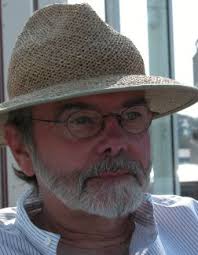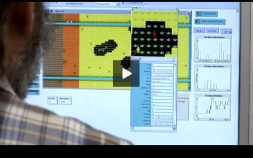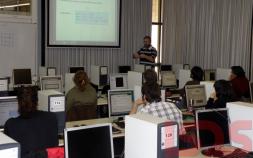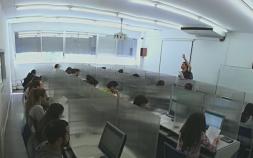|
Home Page
Photo Galleries
News
Registration
Programme
+ Conference Programme
+ Social Events
Related Events
+ ESSA Summer School
+ ESSA @ work Workshop
+ SSC'14 Tutorials
Venue
+ Conference Maps
+ Accommodation
+ Getting to Barcelona
+ Getting to Bellaterra
Committees
Call for Papers
+ ESSA Call for Papers
+ SPUHH Call for Abstracts
Camera-Ready Instructions

|
Thank you very much for attending ESSA 2014 at Barcelona and making it a great success.
Three simultaneous and strongly related events will be held in Barcelona covering the area of computational simulation and social phenomena:
SSC 2014
Social Simulation Conference
Chair
F. Miguel Quesada
Contact
cg.social.simulation.2014@uab.cat
Dates
- Paper submission (extended): April 11th, 2014
- Notification of acceptance: May 19th, 2014
- Early registration closes: May 30th, 2014
- Final paper due: June 15th, 2014
- Conference: September 1st-5th, 2014
More information |
AE 2014
Artificial Economics Conference
Chair
F. Amblard
Contact
ae2014-1@easychair.org
Dates
- Submission: January 30th, 2014
- Notification of acceptance: March 1st, 2014
- Final paper due: April 1st, 2014
- Conference: September 1st-3rd, 2014
More information |
SPUHH
Simulating the Past to Understand Human History
Chair
J. A. Barceló
Contact
juanantonio.barcelo@uab.cat
Dates
- Submission (extended): April 11th, 2014
- Notification of acceptance: May 19th, 2014
- Early registration closes: May 30th, 2014
- Final paper due: June 15th, 2014
- Conference: September 1st-5th, 2014
More information |
Keynote speakers
 Rainer Hegselmann obtained his master's degree in social sciences in 1973 at the University of Bochum, Germany, and he took his PhD in philosophy from the University Essen in 1977. He was professor of philosophy at the University of Bremen 1988-1996, and since 1996 he is professor of philosophy at the University of Bayreuth, and has been fellow / guest professor at The Netherlands Institute For Advanced Study (1994), at the Institute For Advanced Study in Vienna, Austria (1995), at the Centre For Interdisciplinary Research, Bielefeld University (1999-2000), at the Catholic University Leuven, Belgium (2009). Rainer Hegselmann obtained his master's degree in social sciences in 1973 at the University of Bochum, Germany, and he took his PhD in philosophy from the University Essen in 1977. He was professor of philosophy at the University of Bremen 1988-1996, and since 1996 he is professor of philosophy at the University of Bayreuth, and has been fellow / guest professor at The Netherlands Institute For Advanced Study (1994), at the Institute For Advanced Study in Vienna, Austria (1995), at the Centre For Interdisciplinary Research, Bielefeld University (1999-2000), at the Catholic University Leuven, Belgium (2009).
His main research interests concern modelling and simulation of social dynamics, moral philosophy, philosophy of science, and the history of early analytical philosophy.
In the academic year 2012/13 he is senior at the Alfried-Krupp-Wissenschaftskolleg Greifswald, and Head of Bayreuther Forschungszentrums Modellierung und Simulation sozioökonomischer Phänomene (MODUS).
"Thomas Schelling and James M. Sakoda: How to Become an Unknown Pioneer?"
Schelling‘s model has become a classical reference in many scientific contexts: explanation of residential segregation, unintended consequences, micro-macro relations, clustering, social phase transitions, invisible hand explanations, and emergence of spontaneous order. The model has also become a paradigmatic case for the study of mechanisms and the discussion of the status of models in general. Schelling’s model is often considered as the earliest and pioneering example for an agent-based computer simulation.
Without any doubt, Schelling’s model is a wonderful model. However, there is a model, developed by James Minoru Sakoda, that is much more general. In a certain sense it is fair to say that it contains Schelling’s model as an instance. Sakoda’s model was developed much earlier – a first version already by the end of the 1940ies. But today Sakoda and his model is basically forgotten. How could that happen? The talk will try to give an answer.
 Cesáreo Hernández, Ph.D, is Professor of Business and Economics and head of the B&E Department at the University of Valladolid, Spain. He graduated from the University of Barcelona in Industrial Engineering and Economics. He obtained his Ph.D. in 1975 on applications of Control Theory to Econometrics. Cesáreo Hernández, Ph.D, is Professor of Business and Economics and head of the B&E Department at the University of Valladolid, Spain. He graduated from the University of Barcelona in Industrial Engineering and Economics. He obtained his Ph.D. in 1975 on applications of Control Theory to Econometrics.
He initially worked in time series analysis in econometric modelling as a postgraduate at the L.S.E. and Imperial College (London).He is Director of the Complex Social Systems Group at INSISOC (Social Systems Engineering Centre). His research interests include economic methodology and ABM social simulation.
"Artificial Economics And The Future of Political Economy"
Economics is a social science. Being social it inherits complexity. Being science it demands experimentation. Yet conventional wisdom has widely regarded Economics as a non-experimental science that had to rely on observations of real-world, rather than on controlled experiments. With the Nobel Prized awarded to D. Kahneman and V. Smith, Economics was recognized as an experimental science, not without dispute, and Experimental Economics as mainstream Economics. Artificial Economics (AE) extends the scope of Experimental Economics and it helps handling the social complexity of Political Economy. AE can guide us in shaping the missing source of rationality in Economics: ecological rationality, and collective intelligence. AE (simulation with soft agents) can give precise content to the verbal narrative accounting of the classical Political Economists: A. Smith, D. Hume and F. Hayek. On the other hand if AE helps to design efficient exchange institutions say auctions, we solve at the same time the inherent problem of choice under scarcity, thus exporting socially inspired methods to management engineering.
 Tim A. Kohler, Ph.D. in Anthropology from the University of Florida, is Regents Professor and Graduate Coordinator of Archaeology and Evolutionary Anthropology at Washigntong State University. He has increasingly specialized in US Southwestern archaeology, directing excavations in Colorado and New Mexico. He is a Research Associate at the Crow Canyon Archaeological Center, and an External Professor and member of the Science Board at the Santa Fe Institute. He currently directs the "Village Ecodynamics" NSF Biocomplexity project and a joint WSU/University of Washington IGERT called IPEM (IGERT Program in Evolutionary Modeling). Tim A. Kohler, Ph.D. in Anthropology from the University of Florida, is Regents Professor and Graduate Coordinator of Archaeology and Evolutionary Anthropology at Washigntong State University. He has increasingly specialized in US Southwestern archaeology, directing excavations in Colorado and New Mexico. He is a Research Associate at the Crow Canyon Archaeological Center, and an External Professor and member of the Science Board at the Santa Fe Institute. He currently directs the "Village Ecodynamics" NSF Biocomplexity project and a joint WSU/University of Washington IGERT called IPEM (IGERT Program in Evolutionary Modeling).
Much of his work involves quantitative analysis of archaeological data with evolutionary implications, along with simulation of aspects of prehistoric behavior. He is especially interested in cooperative behavior, reciprocity, and other evolutionary processes in Neolithic societies. He uses agent-based and systems-level models as aids in calibrating interpretations of what happened in prehistory.
"Serendipity Then and Now: The Role of Simulation in Understanding the Past"
I briefly review the development of the agent-based model “Village” over the last 15 years. From our attempts to build a platform for investigating the interactions between Pueblo societies and their ecosystems, we have developed branches of Village to investigate processes such as the development of specialization, how exchange influences aggregation, the intensification of animal husbandry, and the relationship between conflict and sociopolitical evolution. I suggest that eventually comparisons of such models with the empirical past will allow us to make progress on thorny fundamental questions such as the causes for social collapse and whether free will is an illusion.
Previous Editions
The list of previous conferences can be accesed here:
https://www.essa.eu.org/index.php?option=com_content&view=article&id=7&Itemid=108
|




![]()
![]()
![]()
![]()
![]()
![]()
![]()








